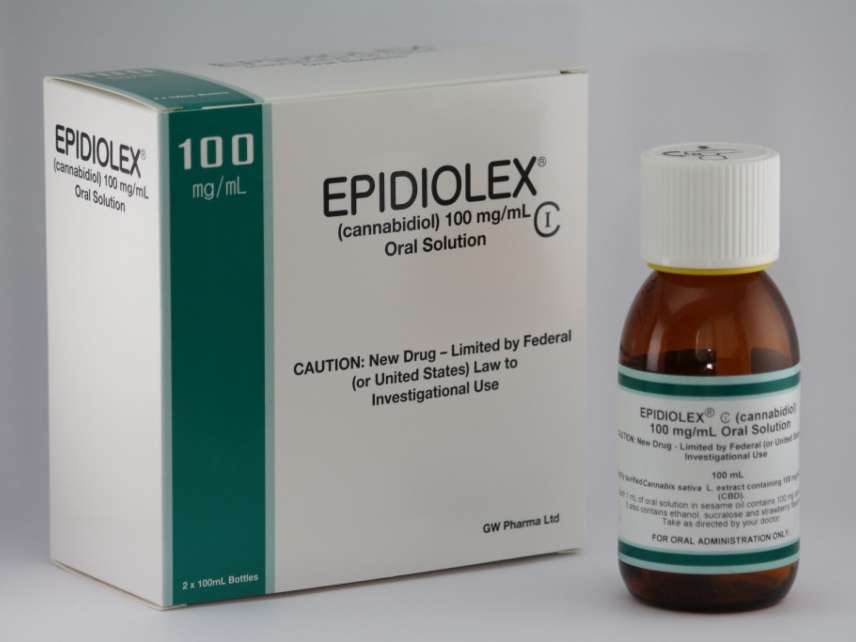This Is the First FDA-Approved Medicine Derived From Cannabis
Cannabidiol, recognized by most states as a treatment for epilepsy, now has the federal government's blessing.

Yesterday the Food and Drug Administration approved Epidiolex, an oral cannabidiol solution made by the British company GW Pharmaceuticals, as a treatment for two forms of severe, drug-resistant epilepsy. Although a synthetic version of THC, marijuana's main psychoactive ingredient, has been legally available as a treatment for nausea and appetite loss since 1985, this is the first time the federal government has given its blessing to a medication derived directly from cannabis.
The plant itself is still listed in Schedule I of the Controlled Substances Act, meaning it has a high potential for abuse and no accepted medical use. In light of the FDA's decision, that designation is clearly no longer appropriate for cannabidiol (CBD), which is not psychoactive but has shown much promise as a medicine.
Patients who received CBD in three randomized, double-blind clinical trials saw much bigger improvements than patients who received placebos. In a study of 225 patients with Lennox-Gastaut Syndrome, for example, the median number of "drop seizures" (which can cause falls) during a 28-day period fell from 85.5 to 44.9 in the high-dose group (a decrease of 49 percent), from 86.9 to 50 in the low-dose group (43 percent), and from 80.3 to 72.7 in the placebo group (21 percent). In a study of 120 patients with Dravet Syndrome, the median number of convulsive seizures over 28 days fell from 12.4 to 5.9 in the CBD group (a drop of 52 percent) and from 14.9 to 14.1 in the placebo group (5 percent).
"The difficult-to-control seizures that patients with Dravet syndrome and Lennox-Gastaut syndrome experience have a profound impact on these patients' quality of life," said Billy Dunn, director of the Division of Neurology Products in the FDA's Center for Drug Evaluation and Research. "In addition to another important treatment option for Lennox-Gastaut patients, this first-ever approval of a drug specifically for Dravet patients will provide a significant and needed improvement in the therapeutic approach to caring for people with this condition."
Twenty-five of the 29 states that allow medical use of marijuana specifically recognize epilepsy as a qualifying condition. Another 17 states officially allow the treatment of epilepsy with low-THC, high-CBD cannabis oil, although they do not necessarily provide a legal way to obtain it.


Show Comments (18)